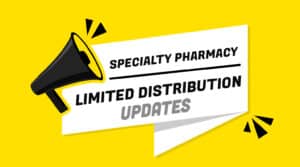A boatload of biosimilars are now sitting in the approval circle since the first one was approved in early 2015. Copies of just four market leaders, including Humira, Neulasta, Herceptin and Remicade, alone account for more than 20 approved biosim follow-ons. And, the number of FDA biosims in the pipeline is expanding.
The article below details a recent report published by Cardinal Health that bears consideration saying, ”…. the resulting biosimilar versions are poised to change the biosimilar landscape as we know it.”
The article below is timely as market resistance seems to be softening as payers begin to include more biosims on formulary. Also, the number of biosims garnering interchangeability status (the holy grail) will allow for substitution where allowed…. four additional adalimumab biosimilar manufacturers are currently pursuing interchangeability.
The article also offers up some interesting prescribing trends within specialties….. with significant upticks in biosim confidence in Rheumatology, Gastroenterology, and Dermatology….. Oncology seems to be a holdout. On the payor front, formulary placement for the foreseeable future is likely to remain sticky due to pre-existing contracts between payers and manufacturers that have built in exclusivity / brand preference clauses that restrict biosims outright or force less preferred formulary placements.
Read on for more insights…..
——————————————————————————————–
Will Humira Biosimilars Entry Cause a Wave or a Ripple?
By Gina Shaw, Pharmacy Practice News
With 2023 poised to be the year of the adalimumab (Humira, AbbVie) biosimilar wave, a new report focuses on the market dynamics that may affect how the new entrants are received by providers and other key stakeholders.
Although the report, issued by Cardinal Health, notes that adalimumab is “arguably the single largest pharmaceutical loss of exclusivity [LOE] event of all time,” and the resulting biosimilar versions are “poised to change the biosimilar landscape as we know it,” interviews with several experts suggest barriers remain. Whether it’s bundled contracts that give exclusivity to the innovator product or other exclusionary tactics, the experts noted that the true market outlook for adalimumab and other biosimilars remain a bit unclear.
One encouraging development, however, is the growing willingness of some providers to consider switching their patients to a biosimilar product, according to the Cardinal Health report. At least 75% of providers in all three relevant specialties surveyed—rheumatology, gastroenterology and dermatology—said they were somewhat comfortable with the prospect of prescribing a Humira biosimilar. Gastroenterologists appeared to be most comfortable, with 93% saying they were at least somewhat comfortable and 50% very comfortable; followed by rheumatologists (86% and 37%, respectively); and dermatologists (75% and 31%). Safety and efficacy as well as overall issues with switching were the most often cited concerns.
“Based on what we’ve observed in the trends within oncology, which had some of the first biosimilars, the differences in comfort level among these three specialties are probably just timeline related,” said Bruce Feinberg, MD, the vice president and chief medical officer of Cardinal Health. “The more exposure specialists have to these agents, [and] the more patients [are] under treatment, the more comfort they will have in prescribing them.”
Where We Are
The first adalimumab biosimilar, adalimumab-atto (Amjevita, Amgen), officially entered……






